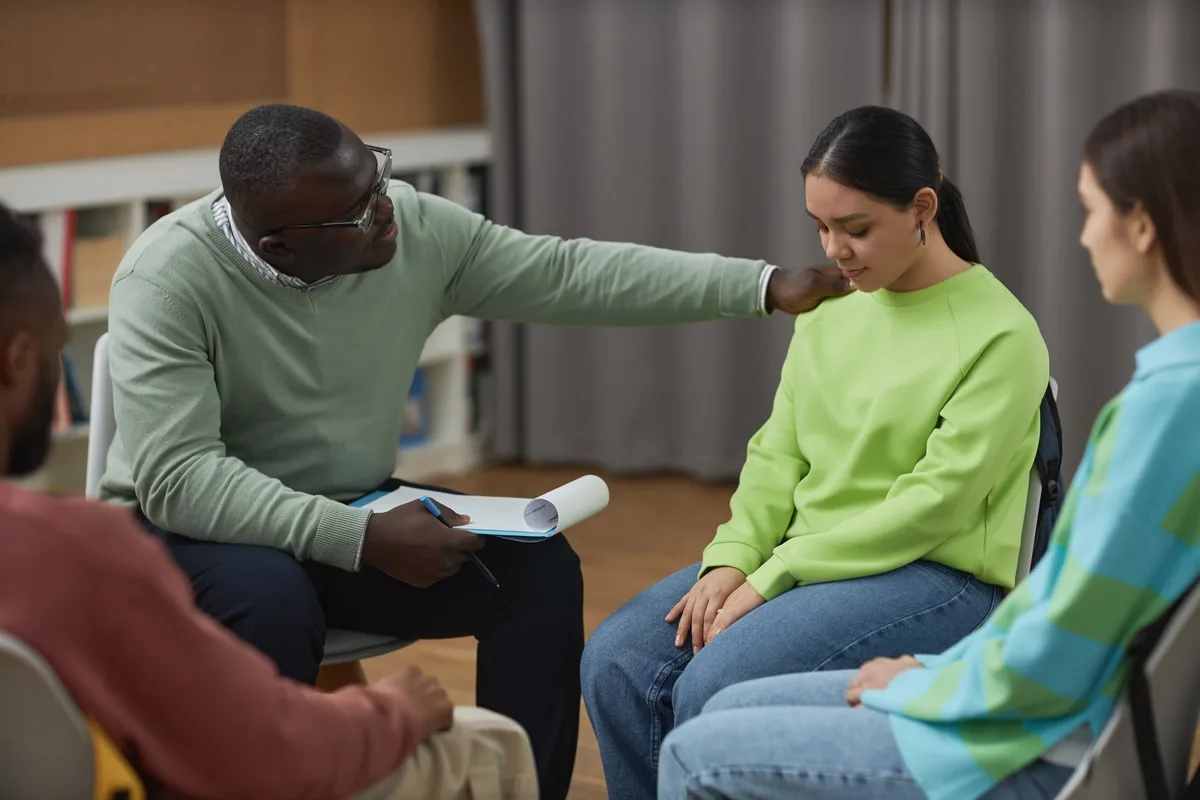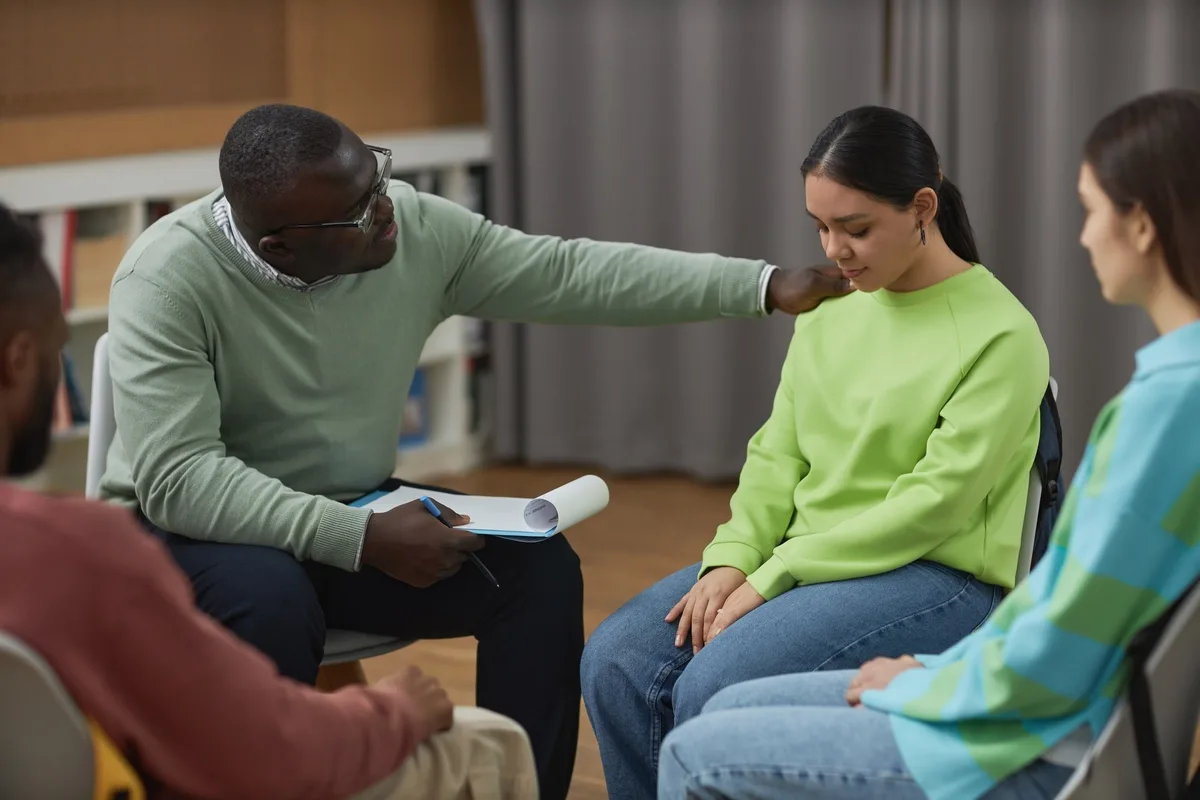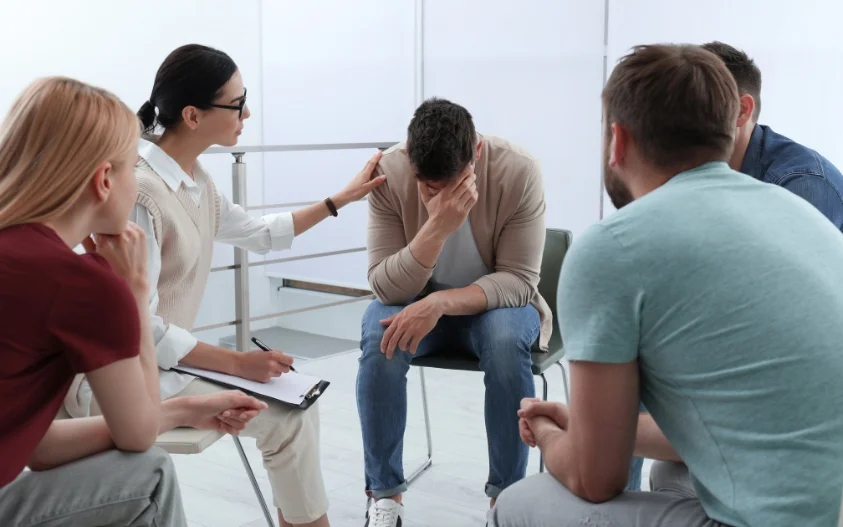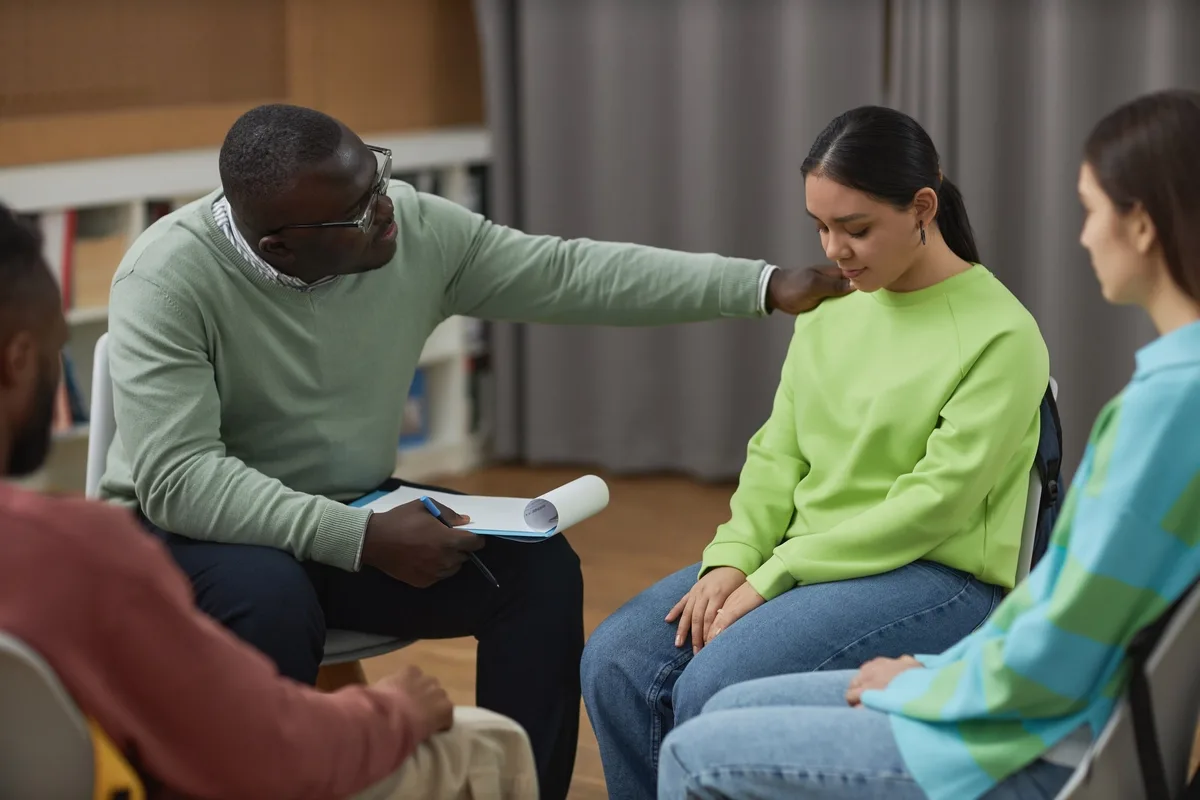24/7 Helpline:
(866) 899-111424/7 Helpline:
(866) 899-1114
Learn more about PTSD Rehab centers in Savage
PTSD Rehab in Other Cities

Other Insurance Options

BlueShield

Regence

Group Health Incorporated

Horizon Healthcare Service

Health Net

Covered California

Kaiser Permanente

Optum

Multiplan
Beacon

Excellus

Sliding scale payment assistance

Absolute Total Care

UnitedHealth Group

Molina Healthcare

MVP Healthcare

MHNNet Behavioral Health

PHCS Network

Health Partners

Cigna






Haven Chemical Health Systems
Haven Chemical Health Systems is a private rehab located in Shakopee, Minnesota. Haven Chemical Heal...

BHSI Shakopee
BHSI Shakopee is a private rehab located in Shakopee, Minnesota. BHSI Shakopee specializes in the tr...

Scott County Mental Health Center
Scott County Mental Health Center is a public rehab located in Shakopee, Minnesota. Scott County Men...

NorthStar Regional – Men’s Residential
NorthStar Regional–Men’s Residential is a behavioral and mental health care facility for adult men i...


































AA – Alcoholics Anonymous
AA – Alcoholics Anonymous is a private rehab located in Prior Lake, Minnesota. AA – Alcoholics Anony...

Lifestyle Counseling
Lifestyle Counseling is a private rehab located in Prior Lake, Minnesota. Lifestyle Counseling speci...

Reformers Unanimous – Addictions Recovery Program
Reformers Unanimous – Addictions Recovery Program is a private rehab located in Shakopee, Minnesota....

A Way Out Recovery
A Way Out Recovery is a drug and alcohol rehab in Shakopee, MN providing men with sober living optio...

Eastern Montana Mental Health
Eastern Montana Mental Health is a private rehab located in Jordan, Montana. Eastern Montana Mental ...



























